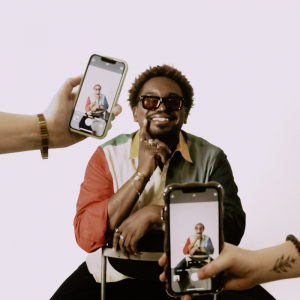Artificial Intelligence: Friend or Foe?
By Will Newton on Friday, October 13, 2023
Have headlines or social media posts covering the rapid progression of artificial intelligence (AI) caused you to feel anxious about graduating high school and entering the workforce? If so, you are not alone. Around 32% of 18- to 20-year-olds are worried that the integration of AI into their chosen career will not only alter their job descriptions, but make their jobs completely obsolete.
So, what exactly is AI...?
Artificial intelligence is best described as a program that gives machines the capability to think like humans to a certain capacity. While this is the plot of almost every science-fiction or horror movie where technology turns violent (“M3GAN,” anyone?), this will never be a reality.
AI can certainly be freaky, but odds are you use it more than you realize–you actually carry AI with you in your pocket every day! AI programs such as Siri and Alexa aid us in mundane tasks such as flipping a coin or asking the definition of “ubiquitous” to control the ecosystem of electronic devices in our homes without lifting a finger. Our pocket-sized AI’s efficiency allows us to increase productivity in our lives, but it also has some cool and creative perks. For example, in February, Spotify launched an AI DJ, which curates a stream of songs based on your listening activity with an AI “host” named X. But AI is much bigger than a talking dictionary –it’s being used to revolutionize the workforce.
The integration of AI into the workplace is going to be a game-changer; however, it’s still up in the air whether it will lead us to victory or to the loss of millions of jobs. In a Pew Research survey, it was revealed that 16% of workers believe AI will advance their jobs, 15% believe it will hurt them, 30% believe it will be a balance of both and 38% don’t know what to expect. You can see why AI has become so controversial.
As it continues to dominate the news, it’s important to understand just what AI is and what it can–and can’t–do in the professional world before entering the Arkansas workforce.
DID YOU KNOW THESE WERE AI?
- Snapchat Chat Bot
- Tiktok For You Page
- Suggested Words/Autocorrect on Microsoft Suites
- Roombas
- Netflix Suggestions
- Face ID on iPhones
- Self-Driving Cars
- Apple And Google Maps
...And should you be worried?
In a Goldman Sachs study, it was revealed that two-thirds of jobs are exposed to AI, and some workers view this as a threat to their job security. In fact, certain employers see it as a cost-efficient replacement for human workers, with 66% of managers being willing to replace their employees with AI if the output is better. This discourse increasingly focuses on clerical jobs such as writers, accountants and even lawyers. Thanks to programs such as ChatGPT, a controversial form of generative AI that learns information through interactions with its user and the internet to generate code, writing or art, articles and paperwork that used to take hours to complete can be done in minutes. <— I promise I wrote this myself!
However, Jennfier Fowler, program director for the Arkansas NSF EPSCoR at the Arkansas Economic Development Commission, calls AI merely a “tool” that could never replace humans. “AI could be scary if it’s unregulated and only understood by a small percentage of our population,” Fowler said. “The best way to address these concerns is for more folks to learn about it and participate in the larger conversation about it.”
Fortunately, jobs that require more hands-on performance are much safer from the possibility of being stolen by AI. For one thing, these trades focus less on generation and more on creation and repair; while AI can be helpful for these jobs, it is unlikely that it will be capable of taking over them completely anytime soon. Also, while AI is able to complete repetitive tasks rather efficiently, workers such as foresters, linemen and carpenters have very unpredictable jobs. Fully relying on AI could be detrimental to productivity or could even lead to disaster.
So, as you continue to think of life post-graduation, check out this list of technical professions that we believe are safe from an AI takeover, and hear from professionals in the industry that explain how they’ve been utilizing the technology.
JOBS MOST LIKELY TO BE REPLACED BY AI
-
Customer Service Representatives
- Telemarketers
- Paralegals
- Accountants/Bookkeepers
- Bank Tellers
- Data Entry Clerks
- Cashiers
- Drivers















